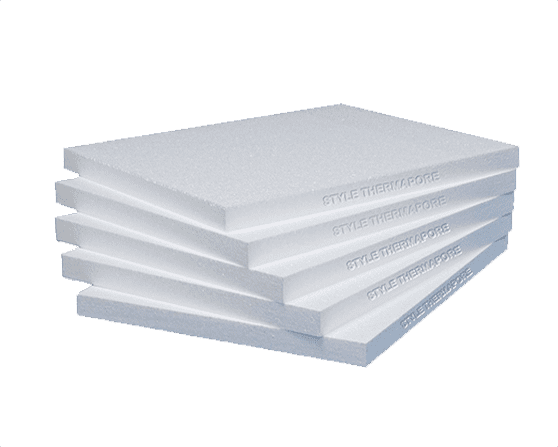
Discover the power of Thermopore EPS insulation, a versatile and energy-efficient solution for homes and buildings. Explore its exceptional thermal performance, moisture resistance, and environmental sustainability, and learn how it enhances comfort while reducing energy consumption. Find out why Thermopore EPS insulation is a game-changer in the construction industry, providing cost savings, mould prevention, and design flexibility. Join the movement towards a greener future with Thermopore EPS insulation.
Introduction
In the quest for energy efficiency and sustainable living, insulation plays a pivotal role. One of the most popular and effective insulation materials available today is Thermopore Expanded Polystyrene (EPS) insulation. With its remarkable thermal properties and versatility, Thermopore EPS insulation has revolutionized the construction industry, enabling homeowners and businesses to enhance energy efficiency, reduce environmental impact, and improve indoor comfort. In this blog, we will delve into the world of Thermopore EPS insulation, exploring its features, benefits, and applications.
I. Understanding Thermopore EPS Insulation
Thermopore EPS insulation is a lightweight, rigid foam board insulation made from expanded polystyrene beads. The beads are infused with a blowing agent that expands them, resulting in a cellular structure filled with trapped air. This cellular structure gives Thermopore EPS its exceptional insulating properties. It is available in various thicknesses and densities, allowing for customization based on specific project requirements.
II. Exceptional Thermal Performance
EPS insulation excels in thermal performance, effectively minimizing heat transfer through conduction, convection, and radiation. Its low thermal conductivity significantly reduces heat loss during winter and heat gain during summer, leading to substantial energy savings. The closed-cell structure of Thermopore EPS foam inhibits the movement of air, preventing drafts and heat leakage. This high level of insulation helps maintain a comfortable indoor temperature year-round, reducing the need for excessive heating or cooling.
III. Energy Efficiency and Cost Savings
By installing, homeowners and businesses can experience significant energy savings. The enhanced thermal efficiency of buildings minimizes reliance on heating and cooling systems, resulting in lower energy bills. Additionally, reduced energy consumption translates into a decreased carbon footprint, contributing to a greener and more sustainable future.
IV. Moisture Resistance and Mold Prevention
It exhibits excellent resistance to moisture, making it an ideal choice for areas prone to humidity or water exposure. Unlike other insulation materials, it does not absorb water, maintaining its insulating properties over time. This characteristic helps prevent the growth of mould and mildew, ensuring a healthier indoor environment and reducing the risk of respiratory issues.
V. Versatility and Ease of Installation
It is incredibly versatile, suiting a wide range of applications. It can be used in walls, roofs, floors, foundations, and even as insulating concrete forms (ICFs). Its lightweight nature makes it easy to handle and install, reducing labour costs and time. With its ability to conform to irregular surfaces and accommodate various building designs, EPS insulation provides architects and builders with flexibility and design freedom.
VI. Environmental Sustainability
It is an environmentally friendly choice. It is made from recyclable materials, and its production process requires less energy compared to other insulation options. The long lifespan of Thermopore EPS ensures durability, reducing the need for replacements and minimizing waste generation. Moreover, its energy-saving properties contribute to overall energy conservation and a greener future.
Conclusion
Thermopore EPS insulation stands as a champion in the field of energy-efficient building solutions. Its exceptional thermal performance, moisture resistance, versatility, and environmental sustainability make it an ideal choice for homeowners, builders, and architects. By harnessing the power of Thermopore EPS insulation, we can create more comfortable, energy-efficient spaces while reducing our environmental impact. Embracing this remarkable insulation material is a step towards a greener and more sustainable future.
